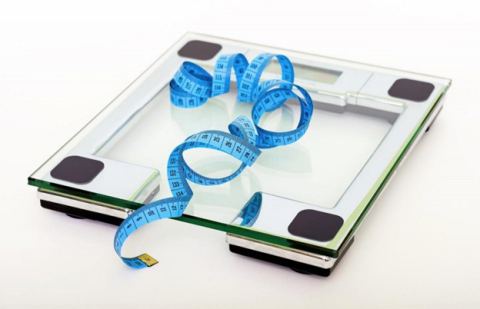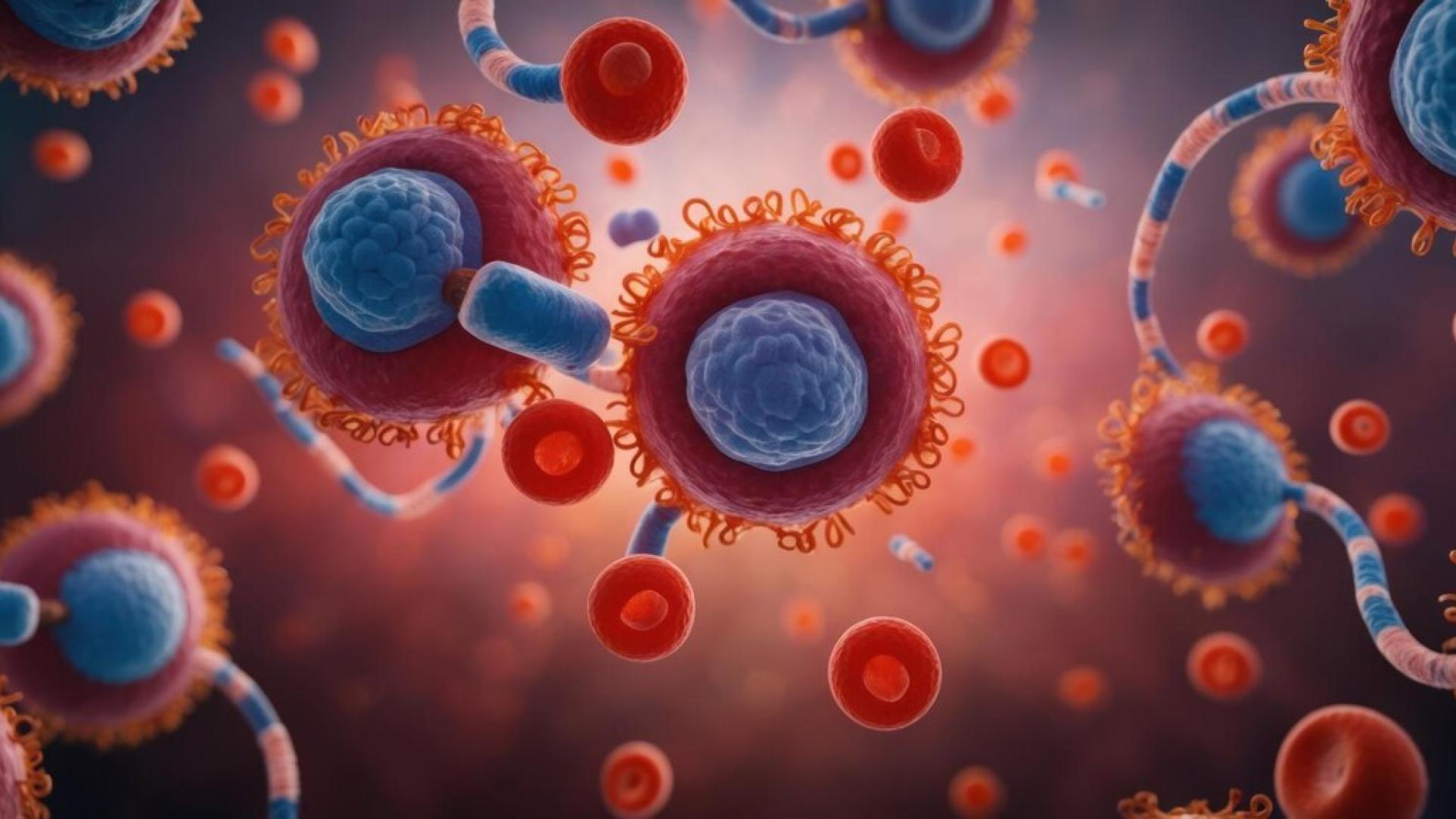Autophagy occurs in every cell of our body, but hardly anyone knows about it. It is a critical process for maintaining cellular health. In 2016, the Japanese researcher Yoshinori Ohsumi received the Nobel Prize in medicine for discovering essential links between fasting and autophagy.
The word autophagy comes from the Greek. “Auto” means itself, and “phagein” means to eat. Autophagy is a process that takes place in the lysosomes within our cells and eliminates and recycles cell components such as broken proteins or other damaged cell organelles—e.g., mitochondria, our power plants in the cells.
Some of the degradation products are recycled or converted into energy. Therefore, fasting strongly boosts autophagy. Furthermore, autophagy combats microorganisms, bacteria, and viruses that have penetrated the body. It, therefore, also plays a significant role in the immune system, infections, the aging process, and tumor development. Well-functioning autophagy can help prevent cancer.
Autophagy no longer works as well as it used to as we age, which causes many diseases. Dementia, Parkinson’s, Alzheimer’s, and diabetes can all be traced back to it. All of this fits well with the observation that people age healthier when they consume fewer calories. It’s no wonder that autophagy has become a major research topic. Many centenarians on Okinawa state, “We only eat so much that we’re not quite full.”
Therefore, well-functioning autophagy is advantageous for the prevention of various diseases. In Parkinson’s specifically, we know that brain cell death is the cause of the disease, and deficient autophagy seems to be a major reason. We’ve talked about cancer prevention before, and there are possibilities that osteoarthritis is also strongly related to autophagy.

Intermittent Fasting
Some researchers in Austria are also significantly involved in autophagy research, especially regarding implementation strategies. University Professor Dr. Frank Madeo is supervising a large-scale study at the Institute for Molecular Biosciences at the Karl-Franzens University in Graz. Fasting triggers autophagy, which is rejuvenating, life-prolonging, and regenerative. Even a short-term fast of 16-20 hours triggers this effect.
Cells need time to get rid of their waste or to recycle it. When you eat constantly, you need insulin all the time, and your body is always busy digesting. Insulin inhibits autophagy. The recommendation to eat five to seven smaller meals throughout the day will soon be a thing of the past. Prof. Madeo says: “Welcome your hunger like a friend, and your body will get cleaned up.”
There is no need to fast for a few days in a row to enjoy autophagy. Intermittent or short-term fasting is also sufficient. An interval of 16:8 is adequate, i.e., eating only twice during an 8-hour block, fasting for 16 hours, and abstaining from all food, including fruit juices. Water is allowed to drink. Preferably, the dinner is skipped. There is also the method of eating normally for a day and then fasting for a day. A side effect of short-term fasting is that fewer calories are usually ingested, which means we can shed a few extra pounds.

Long periods of fasting can become a problem in some circumstances. If you fast for several days, your body will begin to break down muscle as soon as all other reserves have been used up. This not only reduces muscle strength but also slows down metabolism, which has a negative effect on weight control. Intermittent fasting avoids these problems while reaping the full benefits of autophagy.
Pregnant women should avoid long-term fasts, and breastfeeding mothers often experience problems with milk production after just one day of fasting. Children and seniors should also be careful with long-term fasting. Sick or frail persons such as advanced cancer patients may not only lose strength but also negatively impact the immune system if they lack protein in their diet for several days. Therefore, prolonged fasting should be used with caution, while intermittent fasting is well tolerated in most cases.
Plant Based Diet
Some substances in food boost autophagy, including polyphenols. Polyphenols are mainly found in the outer layers of vegetables, fruits, and grains. They protect the interior of the plants from oxidation and also perform this function in the human body.
Spermidine, a substance the body produces, is found in many types of fruit and vegetables. The connection to the seminal fluid is correct. It is found there in high concentrations. Researchers have found that spermidine boosts autophagy as well.
It proves once again that a plant-based diet has many advantages. Animal protein actually inhibits autophagy.

By the way, exercise will help as well. The cells are put into a nutrient deficiency that increases autophagy. It is smart not to eat anything for a few hours after exercising. Then the effect will be even greater.
Getting Practical
We have already seen that intermittent fasting has a beneficial effect on autophagy. It is best to eat a hearty breakfast and a moderate lunch, then skip dinner and eat nothing until the next morning. Calorie consumption is very low during the night, and eating in the evening quickly adds some extra pounds.
Skipping dinner also has a positive effect on sleep. The stomach is not occupied with digestion and can rest. The lying position with a full stomach can sometimes lead to reflux. And since digestion is slower at night, it can lead to unwanted fermentation processes. The quality of sleep is often affected as well.
How do you make this transition in practical terms? Initially, many have problems going to sleep on an empty stomach. If that’s the case, you can try to do a gradual transition. You can do this by increasing your nightly fasting time by moving dinner gradually to an earlier time. After a few days, when you’ve managed to get dinner down to 5 pm, you can skip it altogether.
Another option would be to gradually reduce the amount of food you eat until you can suffice with one piece of fruit in the evening. If necessary, you can switch to fruit juice for a few days until you can skip dinner altogether. Drinking a glass of water or a cup of herbal tea can help to control hunger. Once you get used to the new rhythm, it’s usually not a problem to maintain it.

Another variation of intermittent fasting is to fast one full day a week. Ideally, you should only drink water. If you can’t keep it up, you can help yourself out with some fruit. These do not burden the digestion and are not too high in calories. Most of the time, they are sufficient to control the feeling of hunger. In addition to the health benefits of autophagy, a weekly fasting day also helps with weight loss, and if needed, you spread out two fasting days during the week.
The third variant, which also has positive effects on autophagy, is limiting the calorie intake at every meal. Following the example of Okinawa’s centenarians, you stop eating before you’re full. After eating your first portion, you stop for a moment and examine if it was enough to satisfy your first hunger. If so, put the silverware aside and stop eating. Studies have shown that calorie restriction significantly extends the lifespan of mice. It pays off to take care of your body.
Call to Action
We have seen the benefits autophagy brings to our health. You may need to experiment a bit to see what option works best. Let’s help our body clean up and recycle its cellular waste. Doing this will reward us with good physical health and provide spiritual blessings.
Let us consider fasting as we seek God with our prayers and pleas—to be ready for Jesus' very soon return and to help others be ready, too. All the best with the implementation!
"Then I turned my face to the Lord God, seeking him by prayer and pleas for mercy with fasting and sackcloth and ashes."
Daniel 9:3 ESV

Note: The above was written by Esther Neumann and Martin Neumann and originally published at Abundant Health.




